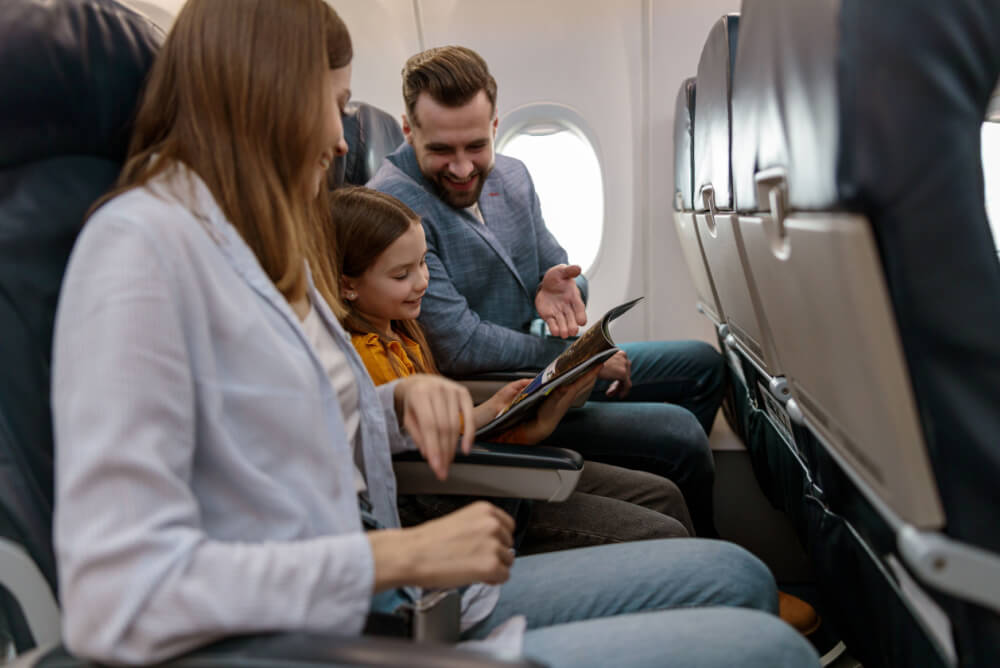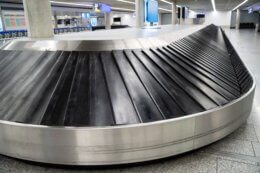
Many of us want to escape the winter and fly out to a warm tropical holiday destination, but should we really be doing so if we can’t afford to pay for the vacation upfront?
A recent Compare the Market survey found 40.4% of adult Australians don’t pay for their holidays upfront.
Although the large majority of people like to save all their money and pay for holidays in full at the time of booking (59.6%), 14.6% say they use a credit card, 12.2% pay in instalments and 4.4% use ‘Buy Now, Pay Later’ services.*
Compare the Market’s General Manager of General Insurance and travel insurance expert Adrian Taylor said many families don’t factor holidays into their family budgets.
“The pandemic has left many people feeling overtired, overworked and ready to dive into the nearest swim-up bar – but not everyone can afford to do this after a record run of rate rises and exploding costs across the board,” Mr Taylor said.
“We know 57% of Aussies plan to escape the daily grind within the next year to go frolicking on holidays, but 40% of these people don’t pay for their vacation upfront.
“Everyone has that one friend who has gone on holidays by paying for everything on the credit card, and then they come home with debt lag and spend ages trying to pay it off.
“If you’re paying for a holiday on a credit card, you risk spending way more than you need to.
“You can get charged a hefty interest rate and might have to pay an additional fee if you miss a payment.
“If you don’t have the money to pay for a holiday upfront, consider if you can really afford to go on holiday.
“Or are you happy to pay off the holiday when you get back?
“If your answer is no to those questions, then the dreamy holiday destination has surely turned sour.”
Boomers were most likely to use their credit card to pay for a holiday (18.9%), with Gen X following closely behind (17.1%).
Gen Z were the least likely to use their credit card (7%), followed by 11% of Millennials.
Surprisingly, Gen Z was also the most likely to save up for a holiday and pay in full at the time of booking (67.5%).
This was followed by Gen X (59.9%), Millennials (58.3%), and Boomers (57.6%).
Meanwhile, 15% of Millennials and 13% of Zoomers prefer to pay an initial deposit and pay off their holiday in regular instalments.
In a similar fashion, Gen Z and Millennials were also the most likely to favour Buy Now Pay Later to pay for their holiday (6.1% and 7.2% retrospectively).
| Gen Z | Millennials | Gen X | Boomers | Total | |
| I save all the money in advance and pay in full at the time of booking | 67.50% | 58.30% | 59.90% | 57.60% | 59.60% |
| I put down an initial deposit and then pay off the holiday in regular instalments | 13.20% | 15.40% | 8.90% | 11.30% | 12.20% |
| I use a ‘Buy Now, Pay Later’ service | 6.10% | 7.20% | 4.10% | 1.00% | 4.40% |
| I book using a credit card, which I pay off at a later date | 7.00% | 11.30% | 17.10% | 18.90% | 14.60% |
| I take out a loan | 1.80% | 1.30% | 1.90% | 0.30% | 1.20% |
| I redeem Frequent Flyer points | 0.90% | 4.10% | 2.20% | 4.00% | 3.20% |
| Other (please specify) | 3.50% | 2.50% | 5.90% | 7.00% | 4.90% |
| Total | 100.00% | 100.00% | 100.00% | 100.00% | 100.00% |
Mr Taylor’s six holiday budget tips
Look for cheap airfares and accommodation
Sites like Skyscanner can help find cheap flights and allow you to see what dates might even be cheapest. While you might find cheap flights, your search shouldn’t end there. Look for affordable accommodation too. If you’re going to be out exploring all the time, do you really need that ocean view?
Monitor exchange rates
If you’re travelling overseas, do your research and shop around for the best exchange rates online. As a rule of thumb, never purchase your international currency at the airport, where exchange rates are notoriously bad. It might not seem like much, but the difference between getting 1.3 or 1.4 $US to $A can mean an extra $50-$80 in your pocket when you’re spending $2000.
Search for value add-ons or deals
Look for hotel inclusions like breakfast – this can save you a lot of time and money on your holiday. If it’s a buffet-style breakfast, maybe you can take a few croissants in a napkin for a snack later on. Other add-ons to look for are free parking, kids staying and eating for free. Depending on how long you’re staying at a place, this can save you a lot of money.
Avoid tourist tax
Get off the beaten track. Follow the locals to find the best restaurants and shops that don’t have a tourist tax attached to the price list. For example, the waterfront in Venice can often be double the price because that’s where all the tourists are and is the hub for water taxis. If you go off the beaten track, there are a cluster of pizzerias and wonderful stores that aren’t as expensive.
Stay local
Ditch the long-haul airfare and enjoy an interstate holiday in Australia. There are plenty of incredible destinations to explore in our own backyard. Whether it be the crispy white sandy beaches in the Whitsundays or in the dusty red outback near Uluru, you can find lots to do.
Compare travel insurance
Travel insurance is one thing that should never be overlooked when planning a holiday. If your flight gets cancelled, luggage gets stolen or you have a medical emergency – you’re going to wish you were covered. Compare the Market can help sightseers find travel insurance that’s suited to their needs, circumstances and budgets.
*Survey of 1003 Australian participants conducted in July, 2023.
For more information, please contact:
Natasha Innes | 0416 705 514 | [email protected]
Compare the Market is a comparison service that takes the hard work out of shopping around. We make it Simples for Australians to quickly and easily compare and buy insurance, energy, and home loans products from a range of providers. Our easy-to-use comparison tool helps you look for a range of products that may suit your needs and benefit your back pocket.








